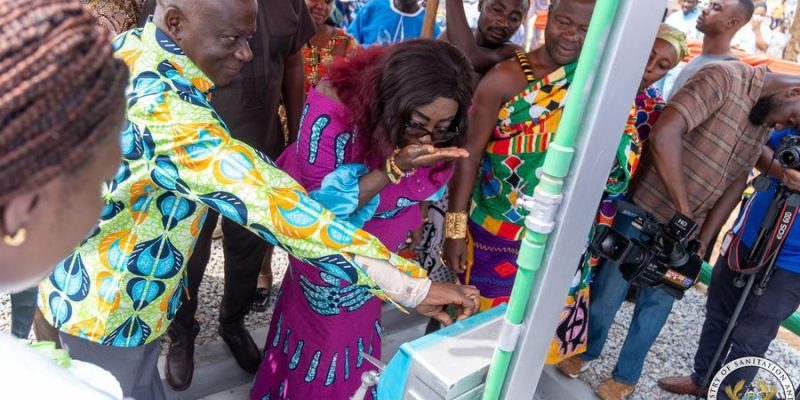In the Volta region of southeastern Ghana, the commissioning of a drinking water supply project has changed the daily lives of 434 communities, including the practice of sanitation and hygiene.
Like most African countries, Ghana aspires to universal drinking water coverage by 2030. And according to Ghana’s Minister of Sanitation and Water Resources, Freda Akosua Prempeh, the drinking water installation commissioned on February 2, 2024 in the Volta region supports this policy. For some two weeks now, it has been improving access to drinking water for 234,411 people in the Central Tongu, North Tongu, Ho West, Adaklu and Agortime Ziope districts, i.e. 434 communities in Ghana.
At a cost of 10,517,852 million Ghanaian cedis (around $845,000) financed by the West African country’s government, the work was carried out by the Community Water and Sanitation Agency (CWSA), which facilitates the provision of drinking water and access to sanitation to rural communities and small towns in Ghana.
Securing access to drinking water
“The work carried out included the mechanization of two boreholes with a 550 m transmission line, the construction of a pumping station and a solar farm, as well as the laying of a 19,300 m distribution network and the installation of pipe fittings,” says Freda Akosua Prempeh, Ghana’s Minister of Sanitation and Water Resources. The project also includes a water system management office, ten new standpipes and repairs to two high-level storage reservoirs.
Read also –
These various installations should help to secure water supply in the Volta region, which has been affected by drinking water shortages for many years. Similar projects are underway in Ghana. “The aim is to ensure that all regions of the country benefit from adequate, safe, affordable and reliable basic water services, including sanitation and hygiene practices by 2030, in line with Sustainable Development Goal 6 (SDG 6),” says Ghana’s Ministry of Sanitation and Water Resources.
Some 96.4% of the urban population has access to basic water supply services, compared with 74.4% in rural areas, according to official Ghanaian figures.
Inès Magoum







